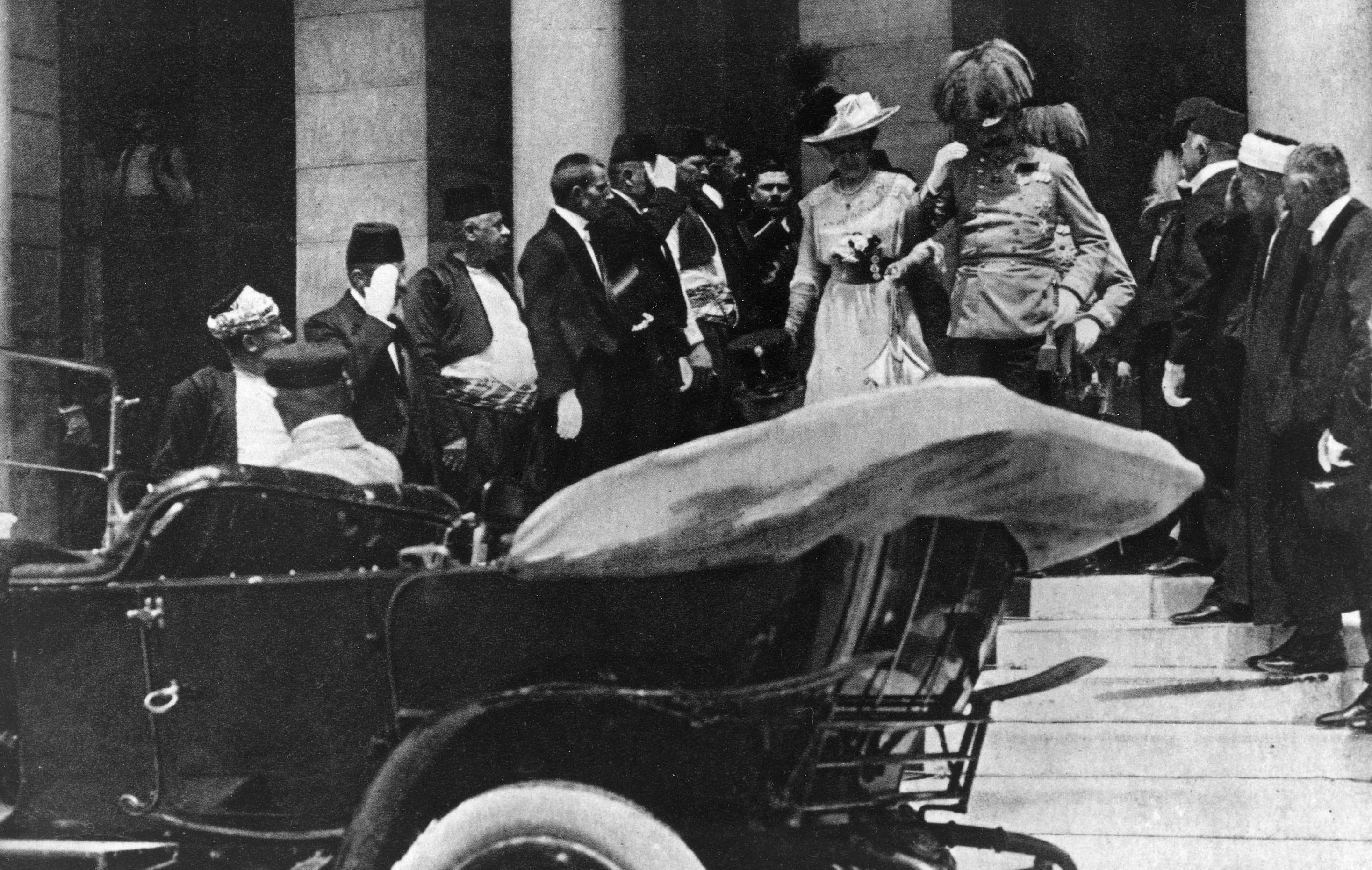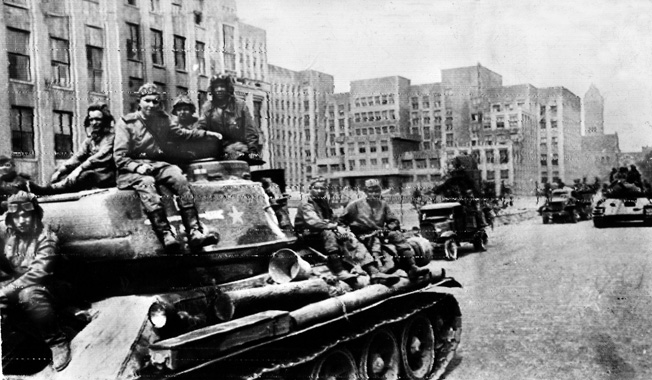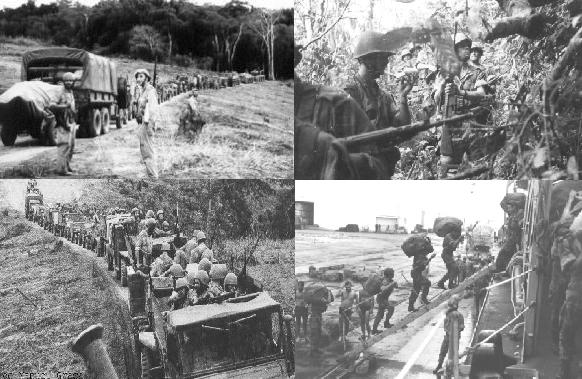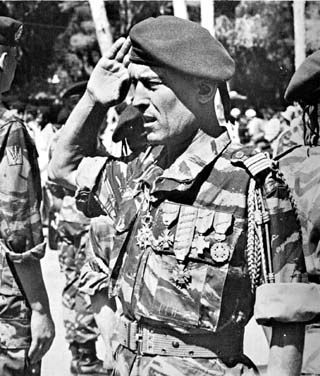This publication, by Ohto Manninen, issued by the National Defence College Helsinki 2004, deals with "The Soviet Union's assessment of the threat to its territory remained
quite constant throughout the late 1930s, and the operative plan for
1939 began on the assumption that Germany and Poland would attack the Soviet Union simultaneously from the west - with the probable participation of the Italian navy - while Japan would attack from
the east. It was estimated that Estonia, Latvia, Romania, Bulgaria,
Turkey and Finland would join the war only if the operations of the
Red Army and the Red Navy did not meet with success from the
outset."
Everything about Tactical Wargaming at its finest | Campaign Series | WinSPWW2 | WinSPMBT | Scenario Design | AAR | Military History
Saturday, 29 June 2019
Friday, 28 June 2019
1914 | Austria-Hungary, the Origins, and the First Year of World War I
A comprehensive & detailed collection of monographs, essays, as well as book reviews related to the subject, edited by Günter Bischof, Ferdinand Karlhofer. "For the past 100 years some of the greatest historians and political
scientists of the twentieth century have picked apart, analysed and
reinterpreted this sequence of events taking place within a single month in July/early August 1914, again and again, from the classic works of
Luigi Albertini, Fritz Fischer and Barbara Tuchman, and Jack Synder
onwards to Christopher Clark and Margaret Macmillan most recently."
Labels:
Recommended Reading
Location:
Bosnia
Thursday, 27 June 2019
Analysis of Deep Attack Operations Operation Bagration | Belorussia 22 June-29 August 1944
is an interesting thesis by William M. Connor, LTC, US Army. "Operation Bagration took place during what the Soviet analysts consider the third period of the war: that of the Soviet strategic offensives which marked the ascendancy of the Soviet armed forces over the German Wehrmacht. During this period, the armed forces of the soviet Union held the strategic Initiative and used it to defeat the Wehrmacht, gain control of Eastern Europe, 'and invade Germany proper, meeting Allied forces on the Elbe River on 25 April 1945. The period is regarded as beginning January 1944 and ending with the V-E Day, 7 May 1945.
Wednesday, 26 June 2019
The Battle of Kasserine Pass | Defeat is a Matter of Scale
is the title of a thesis by Eric G. Evans, MAJ, United States Army. "The Battle of Kasserine Pass is marked by history as an embarrassing defeat of American soldiers
during their first major action against Germany in World War II; some historians even go so far
as to anticipate defeat in the first battles of all major American wars. Does the battle of Kasserine
Pass prove the conventional wisdom that America is doomed to defeat in its first battles?" Another publication about the same subject, "The Battle of Kasserine Pass: An Examination of Allied Operational
Failings", by the faculty of the Air University Press Maxwell AFB, AL is a great supplemental read, too.
Tuesday, 25 June 2019
Why Foreign Counterinsurgency Campaigns Fail
This dissertation, by Donald Frederick Butler, The University of Tennessee, Knoxville, deals with the following - "Why have foreign counterinsurgency operations had such low success rates
since 1945? While operations of this type succeeded at the rate of 85.71% during the
period of 1816-1945, they declined by 56.30 percentage points to just 29.49% during
period of 1945-1997 (Sarkees, 2000: 123-144). This occurred even though foreign
powers were often fighting in the same territories where they had previously been
overwhelmingly victorious."
Labels:
Recommended Reading
Location:
Namibia
Monday, 24 June 2019
French Airborne Operations in Indochina
The full title of the thesis written by Gordon A. Cromley B.A., The Ohio State University is "Using Digital & Historical Gazetteeers to Geocode French Airborne Operations during the French Indochina War." - "The French Indochina War has been given many nicknames but perhaps one of
the most insightful was “the war of the vast empty spaces” which was memorialised in
Bernard Fall’s (1961) book The Street Without Joy. Another historian, Douglas Porch
also characterised the War as the “Paratrooper’s War” (Porch, 1991). However, there are
very works in English that discuss this aspect of the French Indochina War in any
systematic detail. It is the purpose of this thesis to provide a spatial understanding of
French Paratroop Operations (Operations Aeroporte) or OAPs by developing a spatial
database of airborne operations so that future research can examine the nature of airborne
operations during the French Indochina War and how the spatial experiences of those
involved in it influenced counterinsurgency doctrine used by militaries across the globe."
Saturday, 22 June 2019
Barbarossa | Planning for Operational Failure
is a thesis by John D. Snively Lieutenant Commander, USN. "The German planning process for the 1941 Invasion of Soviet Russia is analyzed through the presentation of the major plans developed from July 1940 until June 1941. The final plan Is then critiqued within the context of the applicable Principles of War, The planning process was characterized by significant disagreements between Hitler, the German High Command and the Army High Command. The major points of contention relate to the selection of primary objectives and force deployment patterns. A set of conclusions Is presented which argues that the planning process was faulty due to a number of assumptions which were generally held by the officers who were involved in the process." Another publication, "The German Campaign in Russia: Planning and Operations (1940-1942)", goes into more details.
Labels:
Recommended Reading
Location:
Russia
Thursday, 20 June 2019
Unconventional Warfare in the American Civil War
A thesis by Jeremy B. Miller, MAJ , US Army. "Considering the history of unconventional warfare in the United States, and specifically,
during the Civil War, it begs the question: Did the Confederacy’s strategy to engage in
unconventional warfare significantly contribute to its conventional strategy? Two
assertions remain most accepted by historians and military personnel. The first prevailing
opinion is that the Confederacy’s use of unconventional warfare was ineffective and
negatively affected the overall campaign. The second opinion is that the South’s
unconventional efforts yielded unparalleled success and prolonged the war.
Wednesday, 19 June 2019
Trinquier and Galula | French COIN Theories in the Algerian War
This thesis, by Charles F. Waterfall, Special Agent, FBI is "An examination of counterinsurgency methods used by the French in the
Algerian War can lead to a better understanding of today's insurgencies... - From 1954 to 1962, France fought a bitter and brutal counterinsurgency war
in Algeria. In the wake of defeat in Indochina (Vietnam), France was determined not to
lose in Algeria. Unlike its other overseas territories, Algeria was regarded as being part
of France proper and not simply as a colony. Roger Trinquier and David Galula served
as officers in the French Army and were posted to Algeria during the conflict known in
France as the Algerian War. Both officers documented their first hand observations and
actions in their attempts to counter the insurgents. Examinations of their works shed light
on today's insurgencies."
Tuesday, 18 June 2019
The Cambodian Incursion | Tactical and Operational Success

... and its Effects on
Vietnamization, by Major Jeff Hackett
United States Army National Guard. "Thesis: The United States incursion into Cambodia in 1970 was a tactical and operational
success, but these successes led MACV and Nixon administration officials to draw false
conclusions in regards to the performance and capabilities of the Army of the Republic of
Vietnam (ARVN). United States (US) and South Vietnamese Forces achieved tactical success
during cross border missions. The incursion set the North Vietnamese forces back at least a year
by denying them much needed war materiel. MACV and Nixon administration officials equated
this success to a competent and capable ARVN, which in the summer of 1970 was not the case.
These false conclusions led to the failure of Vietnamization."
Monday, 17 June 2019
The generalship of Vo Nguyen Giap
During my research and virtual visits to the archives I have stumbled upon three interesting studies | monographs about Vo Nguyen Giap, the iconic military leader of the struggle against first the French and later on the US Americans & South Vietnamese in Indochina | Vietnam. The Generalship of Giap — The Myths and the Realities, by Douglas M. Eye, LTC, ADA | General Vo Nguyen Giap - Operational Genius or Lucky Amateur? by Chark W. Alsup, LTC, US Army & A critical analysis of the operational performance of General Vo Nguyen Giap 1940–1954, by Stuart Pascoe, MAJ, Australian Army.
Labels:
Recommended Reading
Location:
Vietnam
Saturday, 8 June 2019
D-Day 1944 | Air Power Over the Normandy Beaches and Beyond
"Operation Overlord, the Normandy invasion-like William the Conqueror's before it or the Inchon landing afterwards-will long be studied as a classic in military planning, logistics, and operations. Overlord depended to a remarkable degree upon the use of air power in virtually all its forms. A half-century ago, aircraft were primitive vehicles of war compared to the modern attackers of the Gulf War era, with their precision weapons, advanced navigational, sensor systems, and communications. Yet, the air plane still had a profound impact upon the success of the invasion. Simply stated without air power, Normandy would have been impossible." by Richard P. Hallion, Air Force Historian.
Subscribe to:
Comments (Atom)






